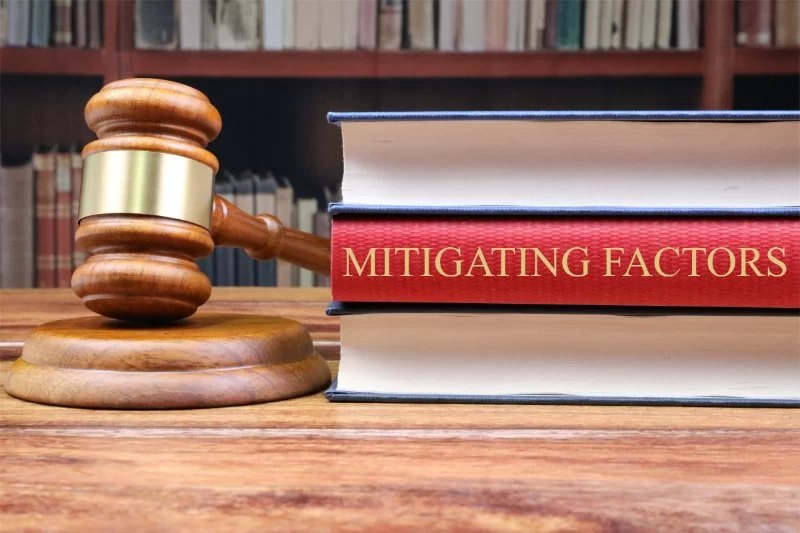
What Are Mitigating Circumstances Legally? Understanding Their Role in Legal Cases
In legal cases, particularly criminal cases, the term "mitigating circumstances" often arises during the sentencing phase. These circumstances can significantly impact the outcome of a trial, influencing the severity of a defendant's sentence. But what exactly are mitigating circumstances, and how do they affect legal proceedings? In this article, we’ll explore the concept of mitigating circumstances, provide examples, and explain their importance in the justice system.
1. Defining Mitigating Circumstances in Law
Mitigating circumstances are factors that may reduce the severity of a defendant’s sentence, even if they are found guilty of a crime. These circumstances don’t excuse the crime but are considered to provide context that might make the defendant’s actions more understandable or less blameworthy. Legally, they can be used by defense attorneys to argue for a lighter punishment or sentence.
In contrast, aggravating circumstances are factors that increase the severity of a sentence, often leading to harsher penalties. The balance between mitigating and aggravating circumstances plays a key role in the criminal justice system, as judges consider all aspects before deciding on a sentence.
2. Common Examples of Mitigating Circumstances
Mitigating circumstances vary depending on the nature of the crime and the individual circumstances surrounding the case. Some common examples of mitigating circumstances include:
- First-Time Offender: A defendant who has no prior criminal history may receive a lighter sentence as a result of their lack of previous offenses.
- Youth or Age: Defendants who are very young or elderly may be given reduced sentences due to their age and the potential for rehabilitation.
- Mental Health Issues: If the defendant was suffering from a mental health disorder at the time of the offense, this can be a strong mitigating factor in sentencing.
- Cooperation with Authorities: A defendant who cooperates with law enforcement, such as providing useful information or testifying, might receive a reduced sentence as a reward for their cooperation.
- Remorse and Accountability: Showing genuine remorse for the crime and taking responsibility can be considered when sentencing, as it suggests the defendant is ready for rehabilitation.
- Duress or Coercion: If the defendant committed the crime under duress, such as being threatened or coerced, this could serve as a mitigating circumstance.
3. How Mitigating Circumstances Affect Sentencing
While mitigating circumstances don’t absolve a defendant of their crime, they can influence the judge’s decision regarding sentencing. For instance, in criminal cases, a judge may take mitigating factors into account when deciding whether to impose the maximum or minimum sentence allowed by law. This is especially common in sentencing for serious crimes such as murder, assault, or theft.
In some cases, mitigating circumstances may result in alternative sentences, such as probation, community service, or mandatory counseling, rather than incarceration. In other cases, a reduced sentence might be granted, allowing the defendant to serve a shorter term in prison.
For example, if a defendant is a first-time offender with a history of mental health issues and shows genuine remorse, a judge might opt to impose a lighter sentence, even for a serious offense, in order to offer a chance for rehabilitation.
4. The Role of Mitigating Circumstances in the Appeals Process
Mitigating circumstances also play an important role in appeals. If a defendant believes that their sentence was too harsh, they can present mitigating circumstances during the appeal to argue for a reduced sentence. Appeals courts will review the original case, including the consideration of any mitigating factors that may not have been fully addressed during the initial trial.
In some cases, new evidence regarding the defendant’s background or mental state may surface, which could lead to a reduction in sentence. For example, if it is discovered that a defendant was suffering from undiagnosed mental health issues at the time of the crime, this could be presented as a mitigating factor during an appeal.
5. Real-Life Case Study: The Impact of Mitigating Circumstances
Consider the case of a young man named James, who was convicted of theft after being caught stealing food. James had never been in trouble with the law before, and during his trial, it was revealed that he had been struggling with severe financial hardship and a lack of access to basic necessities. The judge considered these factors as mitigating circumstances, along with James’ sincere remorse for his actions. Rather than handing down a harsh sentence, the judge decided on community service and probation, believing that this would offer James the chance to rehabilitate without unnecessarily harsh punishment.
This case illustrates how mitigating circumstances—such as financial struggles, lack of prior criminal history, and remorse—can be taken into account to ensure that the punishment fits not just the crime, but the individual circumstances surrounding the defendant.
6. Conclusion: The Importance of Mitigating Circumstances in Justice
Mitigating circumstances are a vital aspect of the legal process, offering a chance for defendants to present factors that might reduce the severity of their sentence. Whether it’s a lack of prior criminal history, mental health issues, or genuine remorse, these factors can help ensure that the punishment is proportionate to the crime and the individual involved. Understanding the role of mitigating circumstances is essential for both legal professionals and the general public to navigate the complexities of the justice system.
If you are facing legal challenges or need advice regarding mitigating circumstances, reach out to experts at ESPLawyers for professional guidance and support tailored to your specific needs.








